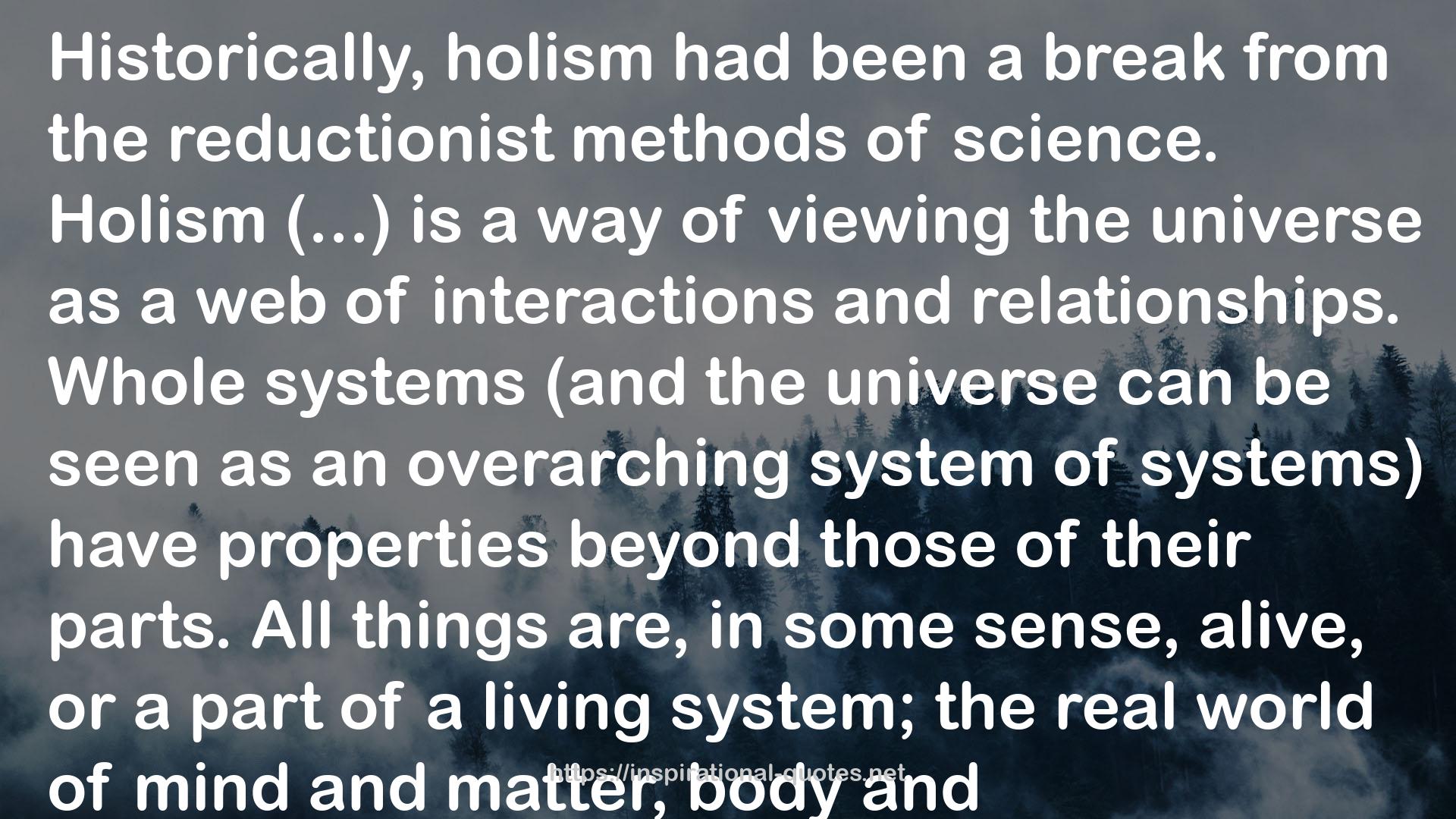" Historically, holism had been a break from the reductionist methods of science. Holism (...) is a way of viewing the universe as a web of interactions and relationships. Whole systems (and the universe can be seen as an overarching system of systems) have properties beyond those of their parts. All things are, in some sense, alive, or a part of a living system; the real world of mind and matter, body and consciousness, cannot be understood by reducing it to pieces and parts. 'Matter is mind' – this is perhaps the holists' quintessential belief. The founding theories of holism had tried to explain how mind emerges from the material universe, how the consciousness of all things is interconnected.
The first science, of course, had failed utterly to do this. The first science had resigned human beings to acting as objective observers of a mechanistic and meaningless universe. A dead universe. The human mind, according to the determinists, was merely the by-product of brain chemistry. Chemical laws, the way the elements combine and interact, were formulated as complete and immutable truths. The elements themselves were seen as indivisible lumps of matter, devoid of consciousness, untouched and unaffected by the very consciousnesses seeking to understand how living minds can be assembled from dead matter. The logical conclusion of these assumptions and conceptions was that people are like chemical robots possessing no free will. No wonder the human race, during the Holocaust Century, had fallen into insanity and despair.
Holism had been an attempt to restore life to this universe and to reconnect human beings with it. To heal the split between self and other. (...) Each quantum event, each of the trillions of times reality's particles interact with each other every instant, is like a note that rings and resonates throughout the great bell of creation. And the sound of the ringing propagates instantaneously, everywhere at once, interconnecting all things. This is a truth of our universe. It is a mystical truth, that reality at its deepest level is an undivided wholeness. It has been formalized and canonized, and taught to the swarms of humanity searching for a fundamental unity. Only, human beings have learned it as a theory and a doctrine, not as an experience. A true holism should embrace not only the theory of living systems, but also the reality of the belly, of wind, hunger, and snowworms roasting over a fire on a cold winter night. A man or woman (or child) to be fully human, should always marvel at the mystery of life. We each should be able to face the universe and drink in the stream of photons shimmering across the light-distances, to listen to the ringing of the farthest galaxies, to feel the electrons of each haemoglobin molecule spinning and vibrating deep inside the blood. No one should ever feel cut off from the ocean of mind and memory surging all around; no one should ever stare up at the icy stars and feel abandoned or alone. It was partly the fault of holism that a whole civilization had suffered the abandonment of its finest senses, ten thousand trillion islands of consciousness born into the pain and promise of neverness, awaiting death with glassy eyes and murmured abstractions upon their lips, always fearing life, always longing for a deeper and truer experience of living. "
― David Zindell , The Broken God (A Requiem for Homo Sapiens, #1)
